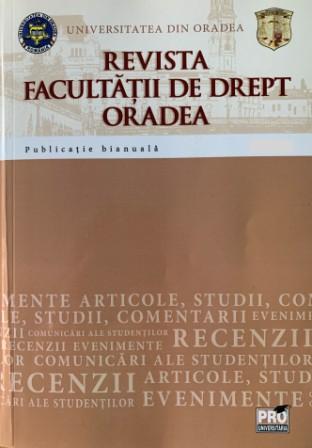Abolitio criminis – evoluţia conceptului în dreptul penal român contemporan şi analiza unor aspecte de teorie şi de jurisprudenţă naţională obligatorie privind noţiunea de dezincriminare
The Evolution of the Abolitio Criminis Concept in Contemporary Romanian Criminal Law and the Analysis of Some Aspects of Theory and Compulsory National Jurisprudence Regarding the Notion of Decriminalization
Author(s): Mihai DuneaSubject(s): Criminal Law, Public Law, Penal Policy, Court case
Published by: Editura Pro Universitaria
Keywords: the act to criminalize – decriminalization (abolitio criminis); more favorable criminal law (lato sensu and stricto sensu); demise of a criminalizing disposition; unconstitutionality; compulsory case;
Summary/Abstract: The article addresses the concept of decriminalization - abolitio criminis - from the perspective of contemporary Romanian criminal law, under a series of theoretical aspects, as well as by analyzing the compulsory national jurisprudence (decisions of the Constitutional Court of Romania and some mandatory decisions of the Supreme Court). The following are considered: the relationship between the operation to criminalize, the essential feature of the crime to be a fact stipulated by the criminal law and the concept of decriminalization; the relation between the concept of decriminalization and that of a more favorable criminal law (mitior lex), considering the broad meaning, as well as the restricted meaning of the latter notion; the differences and the implications of understanding the notion of decriminalization in an abstract sense or concretely; the ways of demise of a criminalizing disposition and the corresponding consequences capable of occurring; the possibility / obligation and the implications of the integration into the concept of decriminalization of the decisions of admission of the exceptions of unconstitutionality of some rules of incrimination; the sphere and content of the actual concept of decriminalization (by reference to the essential feature of the crime represented by the typicality of the act - the property of the act of being typical), as well as the problem of a potential assimilation of the legal solution that decriminalization implies, in relation to the hypothesis of the emergence of new extinctive criminal cases (justifying and / or causes of non-imputability); the possibility of assimilating the situation where the double incrimination is lacking (when the verification of this condition is required for the application of the Romanian criminal law) with the appreciation of the concrete fact that has been committed as atypical (in the sense that it lacks a condition equivalent to that of its mandatory provision in the criminal law) and the relationship between this hypothesis and the concept of discrimination.
Journal: Revista Facultății de Drept Oradea
- Issue Year: 1/2019
- Issue No: 2
- Page Range: 25-57
- Page Count: 33
- Language: Romanian

